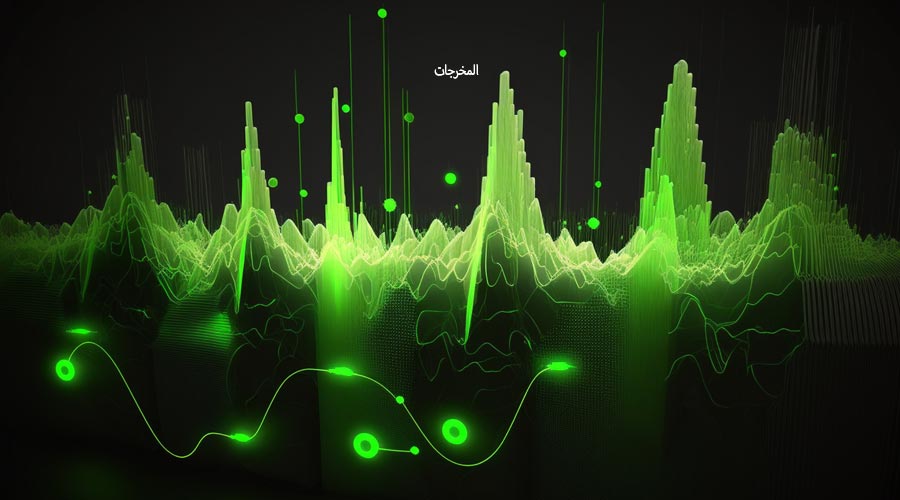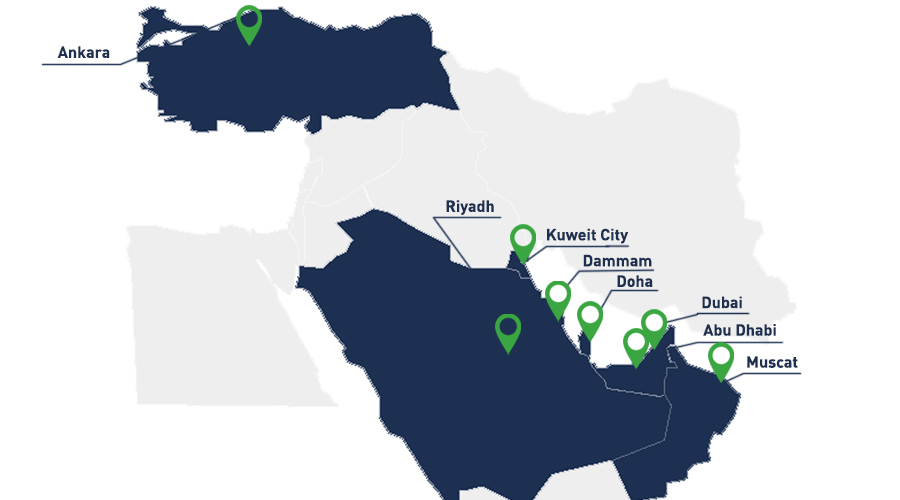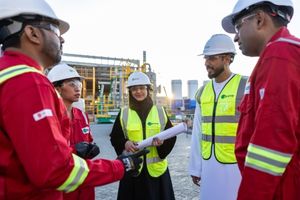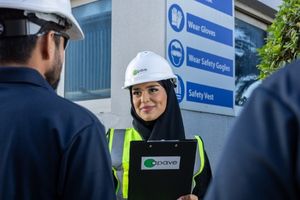Your environmental issues
According to the IEA (International Energy Agency), in 2022, electricity generation was the world's leading CO2 emitting sector, accounting for 42% of total emissions from energy combustion, followed by transport (22%) and industry (20%, including construction). With global greenhouse gas emissions having risen by 51% between 1990 and 2000, there is an urgent need for all those involved in industry and construction to take action to tackle the climate emergency.
One of the first steps to take is to seek the expertise of a third-party organisation to carry out tests and measurements to analyse, measure and prevent all types of environmental impact: air pollution, noise pollution, discharge of harmful substances, water quality, soil quality.... These tests must be carried out prior to a construction project, to reduce the impact of the site on the environment, but they can also be carried out throughout the life cycle of the structure (commissioning, operation, renovation, demolition, etc.).
Carrying out an environmental assessment for your building not only helps to reduce the risks to the environment and local biodiversity, it also helps you to comply with regulatory requirements and protect the health and safety of your workers, occupants and users.
Our environmental diagnostics offer


Lonestar has a number of divisions specialising in different types of testing and measurement, to respond to all types of risk.
Within our Environment Division, we offer a wide range of tests to help you measure the ecological impact of your site and make informed decisions in favour of human health and environmental protection.
We are able to work on all types of industrial sites, whether upstream of construction work, during building operation or during the demolition phase.
Here are the different environmental tests and measurements we offer:
Monitoring stationary sources and ambient air
As an industry player, our teams can test emissions from stacks and other installations in your factories and production sites (fuel-fired boilers, hazardous waste incinerators, etc.) to ensure that you remain compliant with rapidly changing environmental regulations.
We also carry out air quality analyses to identify hazardous air pollutants (HAPs), heavy metals, volatile and semi-volatile organics, dioxins and furans, acid gases, etc. All these airborne contaminants are monitored both in the stacks and in the ambient air.
We can carry out one-off tests and samples, or set up a continuous ambient air monitoring system. This service meets major challenges relating to regulatory requirements, public safety and environmental protection.


Noise monitoring
Our teams can also carry out noise measurements in dB outdoors, in the workplace and on your operating equipment to ensure regulatory compliance. We use a standard-compliant sound level meter (IEC 61672 Class 1 and Class 2 ANSI S-1.4), with continuous data logging capability.
After carrying out the tests on site, we have the results analysed in our laboratories and then issue you with a certificate attesting to compliance with municipal, federal and international environmental standards, and informing you of any corrective action to be taken.
In addition to these tests, we offer a wide range of complementary services:
- Analytical Chemistry
- Industrial hygiene
- Mechanical/Material Testing
- Indoor Air quality monitoring
- Corrosion Testing
- Fracture Toughness (CTOD) testing
- Coating Test Facilities
- Metallurgical Failure investigation
- Salt Spray test
- Full ring test
- Civil / Construction Material testing
- Geotechnical Engineering
- QHSE
- Food testing
- Clean room validation
- Topographic Survey
Fast, reliable local support
in Middle East


Apave is an international group specializing in risk management, with over 150 years of experience.
Every day, Apave's 18,000 employees collaborate with customers to help them protect what they value most: their employees, customers, and assets. Apave offers services and expertise in five key areas: inspection, training, testing and measurements, certification and labeling, and consulting and technical support.
Our teams consist of highly qualified and experienced experts. Thanks to their advanced technical expertise and in-depth knowledge of local regulatory frameworks, they perform reliable and precise technical inspections, considering the specific requirements of the country, sector, and asset involved.
Whether it concerns personal safety, site safety and compliance, environmental safety, or digital security, Apave’s mission is always to be a trusted third party for its customers.
Contact us ?
Your questions
about environmental diagnostics
-
When should an environmental diagnosis be carried out?
It is highly advisable to carry out an environmental audit prior to any construction, development or demolition project. This audit helps to ensure that the structure will be designed and built in compliance with all environmental considerations, and that its construction and operation will have the least possible impact on local biodiversity. This diagnosis can also be carried out at any time after the building has been brought into service, whether as part of a mandatory compliance programme or a voluntary initiative (to reinforce your CSR policy; to improve air quality; to maintain compliance after a change of use, etc.). -
What types of samples are analysed in environmental diagnostics laboratories?
Environmental chemistry laboratories analyse a variety of samples including air, water, soil, sediment and biota (plants and animals), air quality (indoor and outdoor), stationary source monitoring and noise monitoring (indoor, outdoor and area and occupational noise). -
What techniques are commonly used in environmental analysis?
Common techniques include chromatography (gas chromatography, liquid chromatography), spectrophotometry, mass spectrometry, atomic absorption spectroscopy and titration methods. Air quality is normally monitored by Air Quality Monitoring Stations (AQMS), Large Volume Samplers. Stationary sources are monitored using isokinetic sampling kits, while gaseous sources are monitored using instruments calibrated with traceable gases. Noise monitoring uses ISO class 1 sound level meters. -
How are pollutants detected and quantified in environmental samples?
Pollutants are detected by extracting, preparing and analysing samples using specialised instrumentation. Quantification is carried out by comparing sample results with standards or calibration curves.
After analysis, the results are interpreted by comparing them with regulatory constraints or directives and considering the potential impact on human health and the environment. Sometimes these constraints are specific to a project. -
What are the regulations governing environmental diagnostics?
Regulations vary from region to region, but environmental laboratories generally adhere to standards set by government agencies such as the Environmental Protection Agency (EPA) in the US, European Union directives or local government bodies. -
How can I take action to protect the planet through environmental diagnostics?
As a manufacturer, asset manager or operator, these environmental diagnoses provide crucial data enabling you to make informed decisions about pollution control and sustainable environmental management practices. It is a key step in addressing emerging risks such as the presence of microplastics, pharmaceutical pollutants and nanomaterials, and their impact on the environment. In other words, carrying out an environmental assessment of your building will enable you to reduce its ecological impact and help you respond to the environmental emergency. -
Why call on Apave for environmental testing?
Lonestar Laboratories, a subsidiary of the Apave Group, is an ISO 17025 certified laboratory in the Middle East region. We have several branches in the United Arab Emirates and the Gulf region, and have been experts in carrying out tests and measurements for over 30 years. In addition to environmental diagnostics, Lonestar offers its clients a variety of other complementary services, such as geotechnical engineering, civil testing, mechanical testing, topographical surveying, indoor air quality/industrial hygiene, petroleum testing, food testing, etc., which are often included in various tenders. Lonestar offers you a unique turnkey solution that meets all your testing and measurement needs.
Our other services
Our strengths

OUR CUSTOMER RELATIONSHIP APPROACH

OUR EXPERTISE





